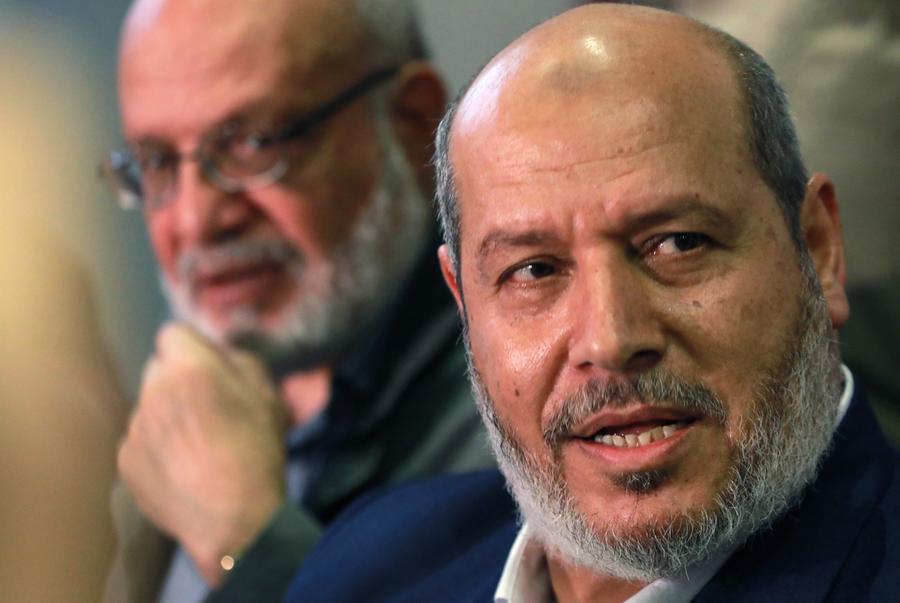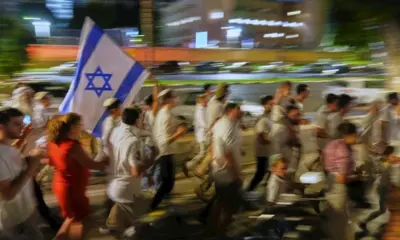Top Stories
Hamas Leader Claims Disarmament Tied to End of Occupation

URGENT UPDATE: In a dramatic shift, Khalil al-Hayya, acting co-chair of Hamas’ political bureau, declared that the group will only consider disarmament if what he terms “occupation” ends. This statement, made in an interview with Al Jazeera, contradicts the US-backed peace framework that requires Hamas to disarm following the return of hostages, with the Israeli Defense Forces (IDF) withdrawing from Gaza thereafter.
Al-Hayya’s comments raise significant concerns regarding the future of peace negotiations, as he explicitly linked disarmament to the cessation of Israeli presence in the region. He stated, “We will only lay down our arms if the occupation ends,” a remark that complicates the already tense discussions surrounding the Trump administration’s peace plan.
While Hamas continues to negotiate, Al-Hayya also mentioned a potential agreement with rival Palestinian factions, including Fatah, to establish a technocratic governing committee for Gaza. However, he provided no details on when or how this committee would be formed, nor whether Hamas officials would be involved, which raises further questions about governance in the region.
This announcement comes amidst conflicting statements from Fatah, which recently dismissed the idea of a joint governing committee, asserting that the Palestine Liberation Organization (PLO) remains the sole legitimate governing body for both the West Bank and Gaza. The division between these factions adds another layer of complexity to the already precarious situation.
In a separate interview, King Abdullah of Jordan expressed skepticism about the proposed International Stabilisation Force (ISF) included in the Trump plan. He questioned what the mandate of such a force would be, emphasizing the need for peacekeeping rather than peace enforcement. Abdullah remarked, “If we’re running around Gaza on patrol with weapons, that’s not a situation that any country would like to get involved in.”
As international dynamics continue to shift, countries like Indonesia, Pakistan, and Azerbaijan are reportedly prepared to contribute troops to the ISF. However, Israel insists on having veto power over any troop deployments, particularly concerning potential Turkish involvement, which Prime Minister Netanyahu has labeled a “red line.”
The implications of these developments are profound, with the potential for increased violence if a consensus cannot be reached. As the situation evolves, the international community watches closely, with many fearing that without a clear path to peace, the cycle of conflict will continue.
Stay tuned for more updates on this breaking story as negotiations unfold.
-

 Science2 weeks ago
Science2 weeks agoResearchers Challenge 200-Year-Old Physics Principle with Atomic Engines
-

 Politics1 week ago
Politics1 week agoNHP Foundation Secures Land for 158 Affordable Apartments in Denver
-

 World2 days ago
World2 days agoBoeing’s Aircraft Production: Assessing Numbers and Challenges
-

 Health2 weeks ago
Health2 weeks agoNeuroscientist Advocates for Flag Football Until Age 14
-

 Lifestyle1 week ago
Lifestyle1 week agoLongtime Friends Face Heartbreak After Loss and Isolation
-

 World2 weeks ago
World2 weeks agoGlobal Military Spending: Air Forces Ranked by Budget and Capability
-

 Top Stories3 days ago
Top Stories3 days agoUrgent Search for Suspect Who Exposed Himself to Teen Girl
-

 Business2 weeks ago
Business2 weeks agoSpirit Airlines Cuts Workforce with Furloughs for 365 Pilots
-

 Politics2 weeks ago
Politics2 weeks agoIsraeli Air Strikes in Lebanon Kill One, Wound Seven Amid Tensions
-

 Health1 week ago
Health1 week agoFDA Launches Fast-Track Review for Nine Innovative Therapies
-

 Business1 week ago
Business1 week agoMaine Housing Inventory Surges to Post-Pandemic High
-

 Top Stories2 weeks ago
Top Stories2 weeks agoUnforgettable Moments: The Best Victoria’s Secret Performances









